Thank Fuck For Sophie Monk
Sophie Monk is breaking the Bachelor franchise for the better.
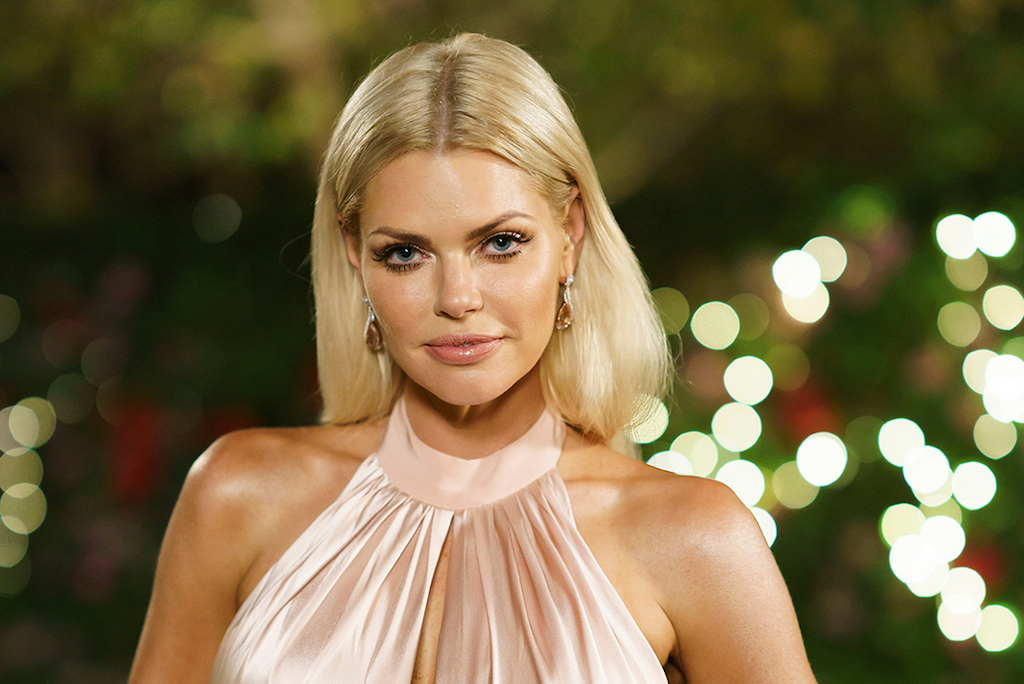
Sophie Monk has been Australia’s Bachelorette for exactly one day and she has saved the Bachelor franchise. I’m calling it. I’m back on board. I want The Love Show. I want the ballgowns and the drama and the B-grade rugby team full of Coles Bakery plain cheese rolls who are butting heads for her affections. I want it all.
I’m not alone either. The love for Monk was overwhelming on social media during last night’s season premiere.
I think @sophiemonk is the the shit and I will watch her every step of her tv love adventure #bacheloretteAU
— Myf Warhurst (@MyfWarhurst) September 20, 2017
Good morning to everyone but especially Sophie Monk, our national treasure
— Bhakthi (@bhakthi) September 20, 2017
No dumb boy is funny enough for Sophie Monk cancel the show #BacheloretteAU
— Alex Lee (@alex_c_lee) September 20, 2017
After a number of particularly clever media appearances and mid-Bachelor ads let her huge personality shine against that of Matty J (or the lack thereof), Monk’s debut was buoyed on a wave of hype. That’s a situation that usually doesn’t bode well; ask anyone who loved Richie Strahan in The Bachelorette and grew to hate him in The Bachelor. But Monk effortlessly came up on top. Somehow, the show feels worth it again.
That’s no mean feat, and it’s one that’s worth a bit of examination.
What Is The Bachelor Even About In 2017 ?
On the surface it is truly weird that The Bachelor is still a thing. How has a show about a man simultaneously courting dozens of women (who each desperately clamour for his affection and live in adjacent bunkbeds) still in prime-time, operating in much the same way it did when it first premiered?
In a reflection on the US show’s first season in 2002, NY Times critic Caryn James described it as a “half pseudo-porn, half fairytale”. “Though it may seem like an exercise in political incorrectness, it is actually an exercise in nostalgia,” she wrote. “And like all nostalgia, it speaks to the longing for an idealised past.
“We’re in an age when sexual roles are fluid, and The Bachelor offers an escape from ambiguity, a temporary and knowingly false return to an era in which male and female roles were clear — stereotypical, but clear.”
The show felt like an exercise in political incorrectness in 2002. The show was an escape from the ambiguous, progressive madness of 2002.
It can be hard to truly picture how long ago 2002 actually was, so here are some other reality shows that also premiered during the year:
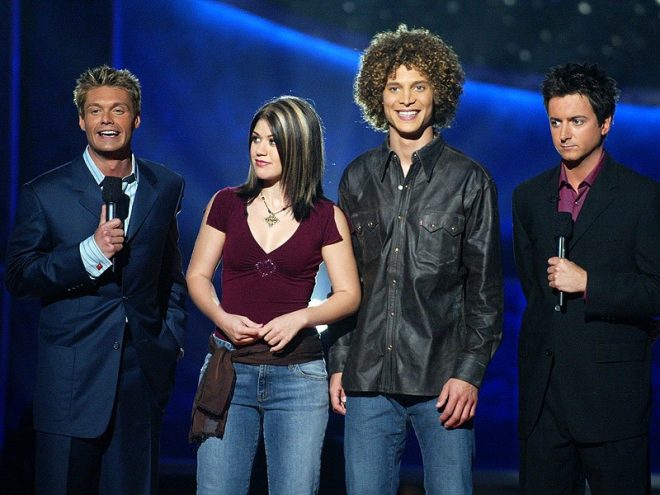
RIP American Idol (2002-2016)
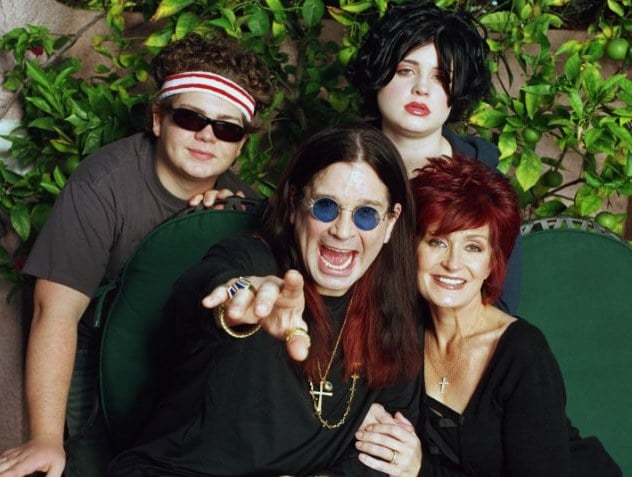
RIP The Osbournes (2002-2005)
2002, for reference, is one year before 2003. And 2003 was fucking ages ago:
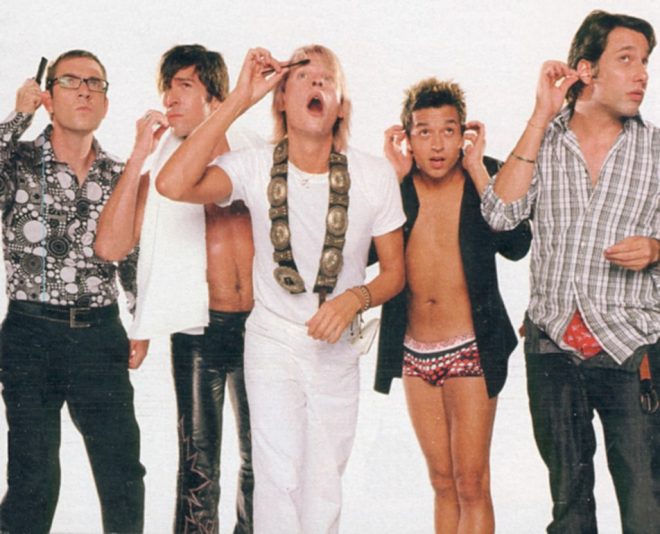
RIP Queer Eye for the Straight Guy (2003-2007)
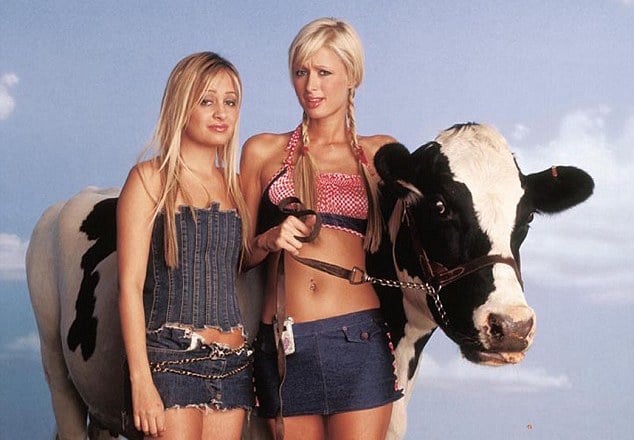
RIP The Simple Life (2003-2007)
If you’re on board with Caryn James’ assessment of the show, the longevity makes sense. The more things change in society (women’s rights, LGBTIQ+ rights, not making people sadistically compete for your love rights), the more certain people (read: straight, cis, white people) want to cling to the past. Australia’s version of The Bachelor only kicked off in 2013! It was virtually the exact same format from when the show debuted in the US 11 years prior; the formula still worked.
But now, in 2017, I think that’s a simplistic way to look at it; one that doesn’t fully reflect the way most people engage with the show. The Bachelor is less of a romance these days than it is a bloodsport. We have office sweeps and we root for our favourites. We bully people who cop the villain edit and make fun of the absurdly awkward dates. There’s a reason Rosie Waterland’s Mamamia recaps and Punkee’s meme-crazy videos have come to define Bachelor fan culture: they’re in on the joke.
The Bachelor is equal parts a celebration of Heterosexual Romance and a skewering of it. We know that Matty J’s not really preparing these elaborate dates. We know that each cocktail party kiss or drama comes on a wave of champagne and that Osher will be making jokes about it on Twitter in real-time. We’re in the age of UnREAL. We’re through the looking glass.
In part, I think we have The Bachelorette to thank for this. In fact, if the spin-off didn’t exist, I think The Bachelor would have been axed years ago. The Bachelorette didn’t just level the playing field, it inverted the tropes of a franchise that was (and yeah, still is) rooted in real-world misogyny.
In switching the gender roles and having fun with it, the artifice of the whole thing comes to the forefront. Asking women to dress up in dumb costumes and/or fight in Zorb balls is a lot more toothless when dudes are also being asked to get their kit off and hug a puppy.
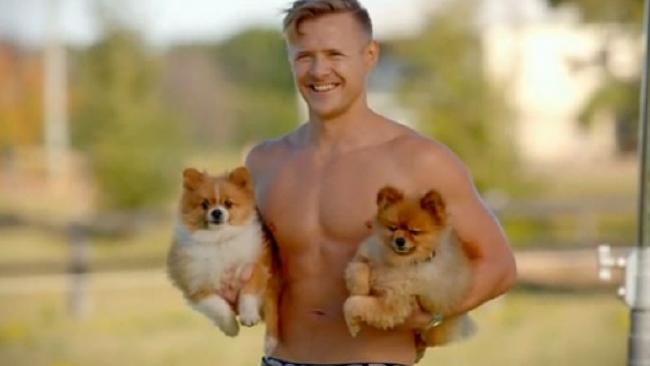
The Bachelor and Bachelorette is now a pantomime of capital-R romance that’s appealing because it can be both batshit crazy and oddly endearing. It’s great that Sam and Snez are happy together — they’re having a baby! — but we’re equally as stoked (maybe more?) that Sam Frost “COMPLETED HER REVENGE CIRCLE” on Blake Garvey by macking on with a bunch of hot tradies in front of the whole country.
This isn’t Pride and Prejudice. Give me the insane filth as well, thanks.
Thank You, Sophie Monk
With all this in mind, Australia literally could not have asked for a better Bachelorette than Sophie Monk.
Monk is earnest, but not painfully so. She wants to find “a regular Aussie guy” who treats her right. She’s been burned in the past. Yes, she walks alone on beaches. She embodies the narrative we’ve come to expect of her and imbues it with a surprising weight. At a full decade older than her Bachie predecessor, Sophie Monk has fucking lived. She’s had a whole other life in LA and a tumultuous public profile and famous exes. When she says she wants to settle down, it doesn’t irritate quite like the others — the 26-year-olds who are desperate for their ~last shot at love~.
Monk is funny too. Like… proper funny. She’s a performer who knows what works for TV. She’s a self-confessed “bogan” and used the word “nerdburger” for the first time on Australian TV since maybe late ’90s-era Neighbours.
Still cant get over how Sophie Monk's voice doesn't match her voice. She sounds like she should look likt this: pic.twitter.com/IfJfEXZtsJ
— sponked monkey (@lozdoglee) September 20, 2017
Sophie Monk is also as much of a product of the early 2000s as the show itself. Her career began in 1999 with the formation of pop group Bardot and they had their first hit with ‘Poison’ in 2000. It became the highest-selling Australian song in the charts that year. Over these early years — the same ones in which The Bachelor would premiere in the US — Monk performed at the ARIAS and The AFL Footy Show. She stuck some recorders up her nose on Rove and appeared in a Blink-182 video.
Though Monk’s career remains lucrative (she’s had a long run of stints on reality shows and cameos in other works) her public image was relatively cemented in those early rises to fame. To some — dudes with no taste in early-2000s Australian pop — she was absolutely ‘the girl from Date Movie’. Until now.
Sophie Monk as the Bachelorette is the technicolour explosion that we both need and deserve. It’s US and Australian weirdness colliding — the past and present merging into a soupy mess of subversive and semi-ironic crazy. Importantly, it’s a move both self-referential and entertaining enough to make The Bachelor franchise exactly what it needs to be. And unlike the last two snoozy seasons of the show, I am here for it.
“We are living in the best of times,” our Bachelorette recapper Sinead Stubbins wrote when Monk was announced as the Bachelorette. “It’s a time where reality TV is now functioning as postmodern meta-commentary on reality TV itself, where everything is a reference to something else and no one is bothering to pretend any of this is really real or in any way accidental.”
Strap in for the wonderful ride.
–
Meg Watson is the Editor of Junkee. She tweets @msmegwatson.

